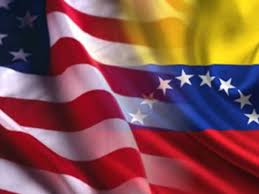
Breaking News
 Naomi Wolf: "Von der Leyen Lied About Pfizer Safety" EU Parliament (Publisher Recommended)
Naomi Wolf: "Von der Leyen Lied About Pfizer Safety" EU Parliament (Publisher Recommended)
 A Billion Voices of Truth: Mike Adams Announces "Moonshot" Mission to Empower Humanity...
A Billion Voices of Truth: Mike Adams Announces "Moonshot" Mission to Empower Humanity...
 This Is The Most Evil Reaction To Charlie Kirk's Assassination That I Have Seen
This Is The Most Evil Reaction To Charlie Kirk's Assassination That I Have Seen
 Two Strikes in Two Weeks: U.S. Escalates Toward Regime Change in Venezuela Under Drug War Cover
Two Strikes in Two Weeks: U.S. Escalates Toward Regime Change in Venezuela Under Drug War Cover
Top Tech News
 ORNL tackles control challenges of nuclear rocket engines
ORNL tackles control challenges of nuclear rocket engines
 Tesla Megapack Keynote LIVE - TESLA is Making Transformers !!
Tesla Megapack Keynote LIVE - TESLA is Making Transformers !!
 Methylene chloride (CH2Cl?) and acetone (C?H?O) create a powerful paint remover...
Methylene chloride (CH2Cl?) and acetone (C?H?O) create a powerful paint remover...
 Engineer Builds His Own X-Ray After Hospital Charges Him $69K
Engineer Builds His Own X-Ray After Hospital Charges Him $69K
 Researchers create 2D nanomaterials with up to nine metals for extreme conditions
Researchers create 2D nanomaterials with up to nine metals for extreme conditions
 The Evolution of Electric Motors: From Bulky to Lightweight, Efficient Powerhouses
The Evolution of Electric Motors: From Bulky to Lightweight, Efficient Powerhouses
 3D-Printing 'Glue Gun' Can Repair Bone Fractures During Surgery Filling-in the Gaps Around..
3D-Printing 'Glue Gun' Can Repair Bone Fractures During Surgery Filling-in the Gaps Around..
 Kevlar-like EV battery material dissolves after use to recycle itself
Kevlar-like EV battery material dissolves after use to recycle itself
 Laser connects plane and satellite in breakthrough air-to-space link
Laser connects plane and satellite in breakthrough air-to-space link
 Lucid Motors' World-Leading Electric Powertrain Breakdown with Emad Dlala and Eric Bach
Lucid Motors' World-Leading Electric Powertrain Breakdown with Emad Dlala and Eric Bach
Two Strikes in Two Weeks: U.S. Escalates Toward Regime Change in Venezuela Under Drug War Cover

On September 2, 2025, the U.S. military carried out a lethal strike on a vessel allegedly departing Venezuela with drugs on board, killing 11 people. Officials tied the boat to Tren de Aragua and claimed it was a deterrent against narco-smuggling. But no evidence of narcotics or the identities of the dead was provided, raising major legal and moral questions.
"We just, over the last few minutes, literally shot out a boat, a drug-carrying boat, a lot of drugs in that boat," Trump told reporters at the White House.
Now, just two weeks later, a second strike has been confirmed. On September 15, U.S. forces hit another vessel in international waters near Venezuela, killing three more people. President Trump shared a video of the explosion and insisted "big bags of cocaine and fentanyl" were visible, though no independent verification has been released. Administration officials doubled down, calling the targets "narcoterrorists" and signaling more strikes are likely.
For decades, U.S. maritime drug operations have followed a familiar pattern: the Coast Guard interdicts, boards, seizes evidence, and prosecutes suspects in federal court. These two Venezuelan strikes mark a doctrinal shift from law enforcement to warfighting—extrajudicial killings in international waters. Even Vice President J.D. Vance admitted there are "due process concerns," while legal experts question the self-defense rationale when the U.S. is not in an armed conflict with Tren de Aragua or the Venezuelan state.
Until recently, the administration hammered one message: China and Mexico are the backbone of the fentanyl crisis. For over a year, hearings, sanctions, tariffs, and diplomatic pressure focused on Chinese precursors and Mexican cartels. Suddenly, the target has shifted. In the last month, Venezuela is branded a "narco-state," its waters treated as a warzone, and its people as legitimate military targets.
This pivot looks less like a tactical response to drug smuggling and more like the opening act of a broader campaign. U.S. deployments in the Caribbean are growing, rhetoric from officials like Marco Rubio is escalating, and think-tanks are already framing Venezuela as the next front in "narcoterrorism."
Venezuela has long been in Washington's crosshairs. Sanctions have strangled its economy, and regime-change talk has simmered for years. With China now making concessions on fentanyl under U.S. pressure, the narrative needed a new villain. By tying Venezuela to drugs and cartels, the administration creates cover for a military build-up, one that doubles as geopolitical pressure against a government it has long sought to topple.



